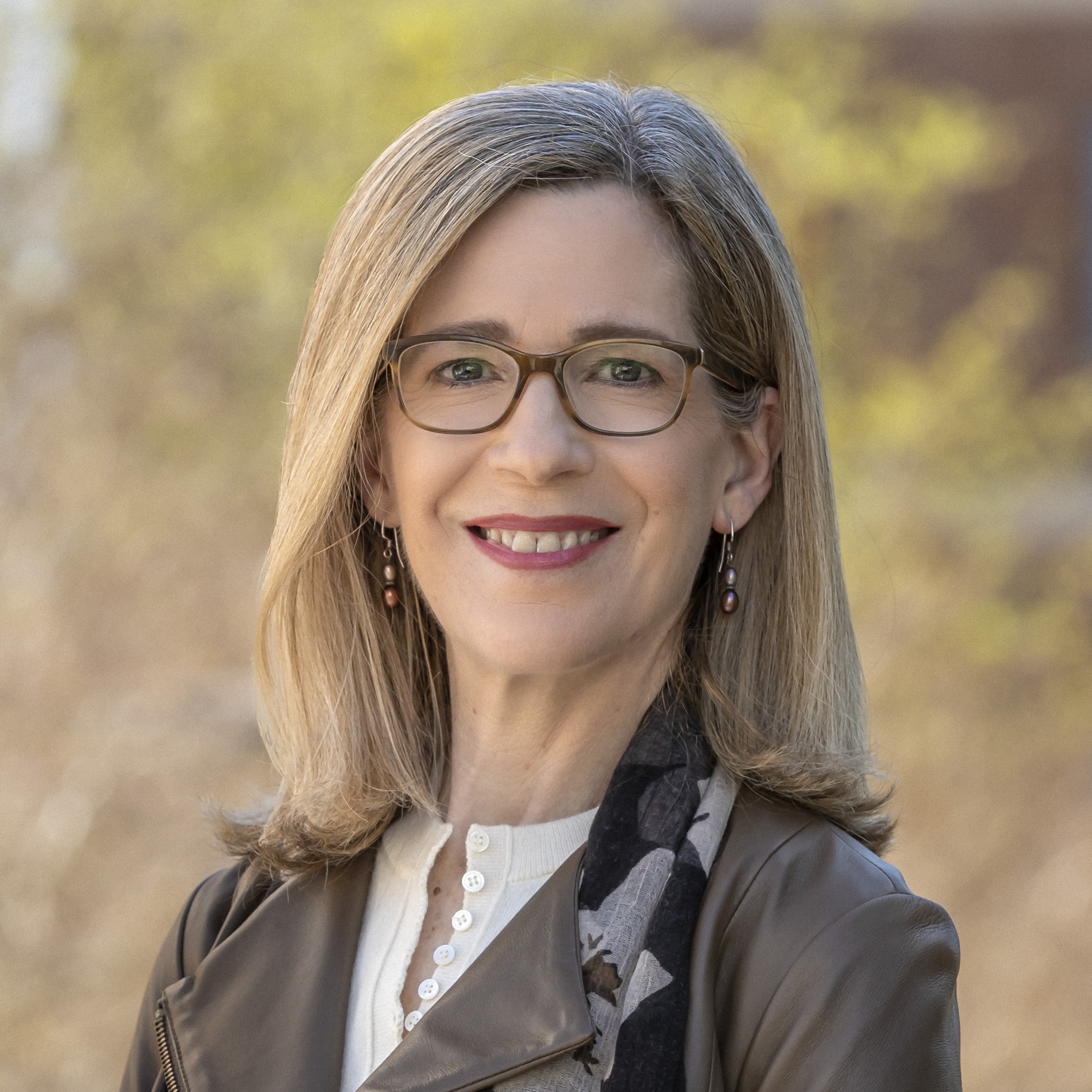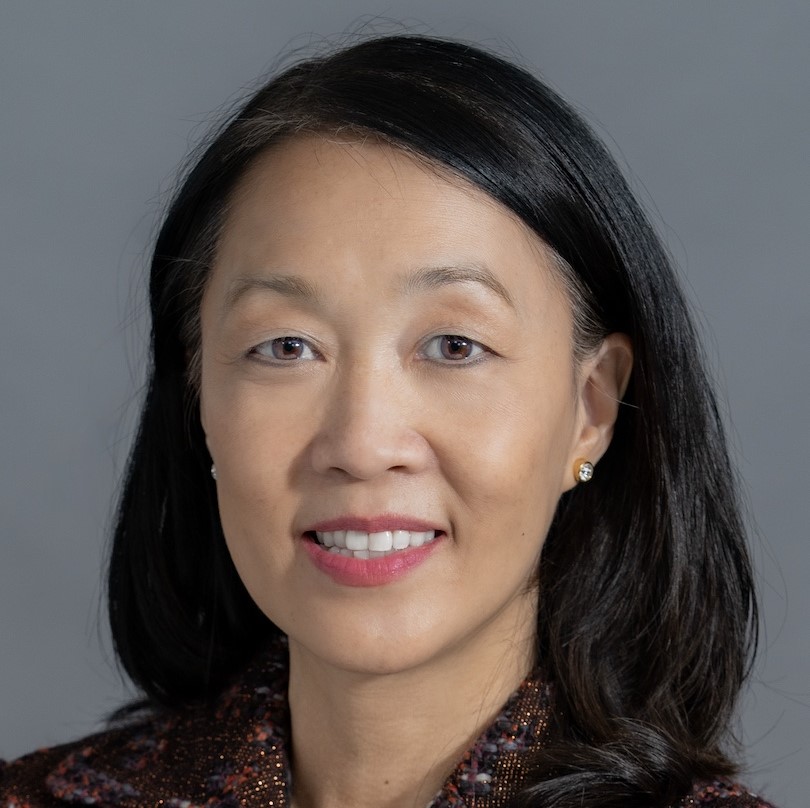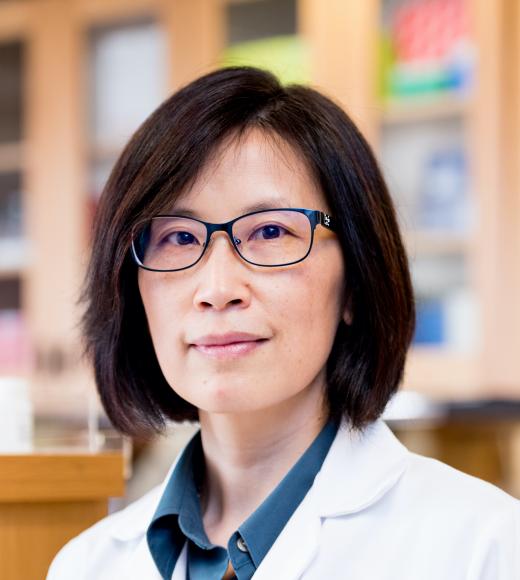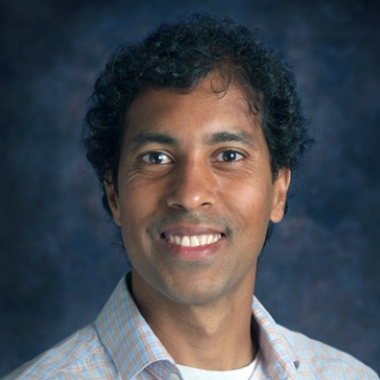OADR-ORWH ScienceTALKS - March 4, 2025
Date and Time
– March 4, 2025, 2:00 PM ESTVirtual Only.
The purpose of the OADR-ORWH ScienceTALKS series is to examine the state of the science in specific areas impacting research on autoimmune disease and women’s health. This session of ScienceTALKS is focused on the emerging field of cellular therapies and how this field may evolve for people living with autoimmune diseases.
Target Audience: This session is designed for a scientific audience with an interest in autoimmune disease research. The event is open to the public, but scientific talks may not be tailored for a general audience.
 | Lindsey A. Criswell, M.D., M.P.H., D.Sc. Director National Institute of Arthritis and Musculoskeletal and Skin Diseases Lindsey A. Criswell, M.D., M.P.H., D.Sc., Director of the National Institute of Arthritis and Musculoskeletal and Skin Diseases (NIAMS), oversees the Institute’s annual budget of more than $685 million, which supports research into the causes, treatment, and prevention of arthritis, musculoskeletal and skin diseases. NIAMS seeks to advance health through biomedical and behavioral research as well as through research training and dissemination of information on research progress in these diseases. Dr. Criswell also leads a laboratory investigating genetic risk factors for autoimmune disease, including rheumatoid arthritis (RA), systemic lupus erythematosus (SLE) and Sjögren's disease. Additional research topics of interest include refining the major histocompatibility complex associations, genotype-phenotype associations, genetic ancestry and disease risk and outcomes, and the contribution of environmental and epigenetic factors to risk of autoimmune disease. Prior to joining NIAMS, Dr. Criswell was Vice Chancellor for Research at the University of California, San Francisco (UCSF), where she was also a Professor of rheumatology and orofacial sciences. Dr. Criswell earned a bachelor’s degree in genetics and a master’s degree in public health from the University of California, Berkeley; a D.Sc. in genetic epidemiology from the Netherlands Institute for Health Sciences, Rotterdam; and an M.D. from UCSF. Dr. Criswell is board certified in internal medicine and rheumatology. She is also a member of the Association of American Physicians and National Academy of Medicine. |
 | Aimee S. Payne, M.D., Ph.D. Herbert and Florence Irving Professor and Chair Department of Dermatology Columbia University Irving Medical Center Aimee S. Payne, M.D., Ph.D., has clinical and research expertise that centers on the diagnosis and treatment of autoimmunity, with particular focus on the autoimmune blistering diseases pemphigus and pemphigoid. Her research laboratory invented a targeted immunotherapy approach for autoimmune B cell depletion known as chimeric autoantibody receptor (CAAR) T cell therapy and performed key studies leading to Food and Drug Administration clearance of two Investigational New Drug Applications of CAAR T cell technology. These studies have enabled the first precision cellular immunotherapies for autoimmunity to enter clinical trials in mucosal pemphigus vulgaris and muscle-specific tyrosine kinase (MuSK) associated myasthenia gravis. The laboratory’s work was recognized with a Clinical Research Forum Achievement Award in 2017 and has been published in Science, the Journal of Clinical Investigation, and Nature Biotechnology. Dr. Payne is an elected member of the American Society for Clinical Investigation and the American Dermatological Association and serves on the Medical Advisory Council of the International Pemphigus and Pemphigoid Foundation. She received her bachelor’s degree in biology from Stanford University and is a graduate of the Washington University School of Medicine in St. Louis, where she earned her M.D. and a Ph.D. in molecular and cellular biology. She completed her dermatology residency and postdoctoral fellowship at the University of Pennsylvania. |
 | Qizhi Tang, Ph.D. Professor Diabetes Center Department of Surgery, School of Medicine UCSF-Gladstone Institute of Genomic Immunology Eli and Edythe Broad Center of Regeneration Medicine and Stem Cell Research University of California, San Francisco Qizhi Tang, Ph.D., leads a major line of research in her laboratory at the University of California, San Francisco (UCSF) focused on regulatory T cell therapy for autoimmune diseases and transplantation. Since 2011, she has also been co-directing the regulatory T cell therapy program at UCSF, which has supported 10 early-phase clinical trials in type 1 diabetes, pemphigus, islet transplantation, kidney transplantation and liver transplantation. Currently, her laboratory is working on genetic engineering of regulatory T cells for therapeutic applications. Another area of research in the Dr. Tang’s laboratory is on optimizing islet transplantation to enable highly efficient immunosuppression-free replacement of pancreatic beta cells for the treatment of type 1 diabetes. Dr. Tang received her Ph.D. in immunology from University of Illinois at Chicago and completed her postdoctoral fellowships investigating mechanisms of immune tolerance at University of Chicago and UCSF. She joined the UCSF faculty in 2002 as assistant professor in pathology, where she researched mechanisms of immune tolerance. She joined the Transplantation Division in the Department of Surgery at UCSF in 2007 to lead basic research and translational research in transplant immunology. She directed the UCSF Transplantation Research Laboratory from 2014 to 2021. She joined the UCSF Diabetes Center in 2021 and has been the director of the Breakthrough T1D Northern California Center of Excellence since 2022. |
 | Vijay Bhoj, M.D., Ph.D. Assistant Professor Department of Pathology and Laboratory Medicine Perelman School of Medicine University of Pennsylvania Vijay Bhoj, M.D., Ph.D., has research expertise in the area of cellular immunotherapy. In particular, Dr. Bhoj has experience in preclinical development of immunotherapy that employs engineering immune-receptors (e.g., chimeric antigen receptors) for the treatment of cancer and non-malignant conditions such as autoimmunity and transplant rejection. In addition to conducting preclinical in vitro and in vivo studies using animal models, Dr. Bhoj has experience in conducting correlative studies in patients undergoing immunotherapy to study the immune impact of such therapies. Dr. Bhoj received his bachelor’s degree in biology from The College of New Jersey, and his Ph.D. in immunology and M.D. from the University of Texas Southwestern Medical Center. He then went on to complete his residency in clinical pathology at the Hospital of the University of Pennsylvania. Dr. Bhoj received the Association for the Advancement of Blood & Biotherapies Foundation Award for Innovative Research in 2024 for his work leading to a deeper understanding of CAR T therapies for patients with cancer that set the stage for purposeful development of such therapies for antibody-mediated diseases and later led to the development of a potential CAR T cell therapy for autoimmune pemphigus vulgaris. |
| Time | Session |
|---|---|
12:00–12:15 p.m. | Welcome and Opening Remarks
|
12:15–12:45 p.m. | Precision Targeting of Autoantigen Specific B Cells in Autoimmune Disease
|
12:45–1:15 p.m.
| Promoting Immune Tolerance for the Treatment of Type I Diabetes
|
1:15–1:45 p.m.
| Cellular Immunotherapy for Hematologic Autoimmune Diseases
|
1:45–1:55 p.m. | Panel Question and Answer
|
| 1:55–2:00 p.m. | Closing Remarks |
Sign language interpreting services are available upon request. Individuals who need interpreting services and/or other reasonable accommodations to participate in this event should email OADRInfo@nih.gov. Requests should be made at least five business days in advance of the event.
